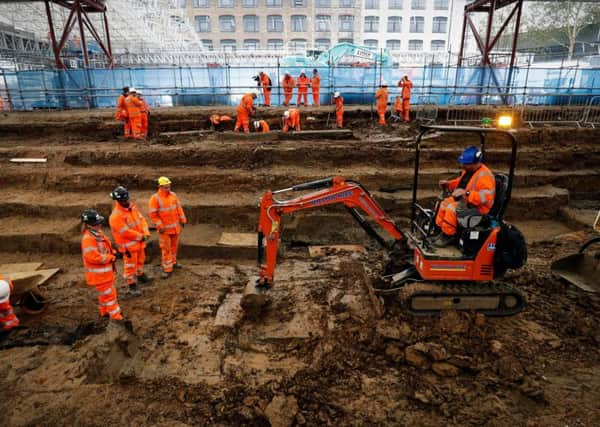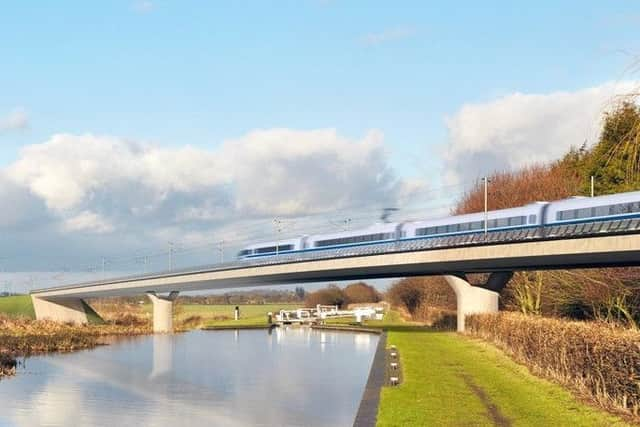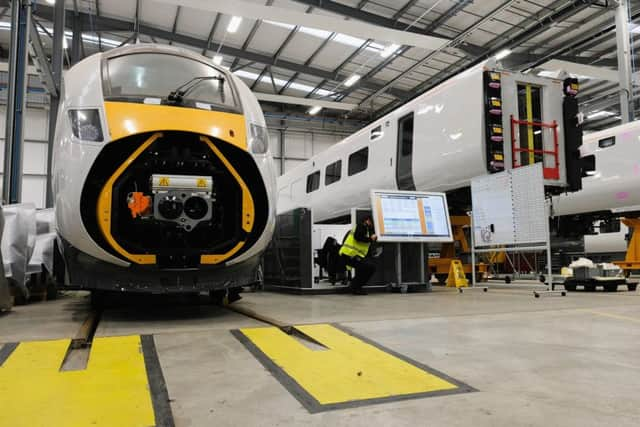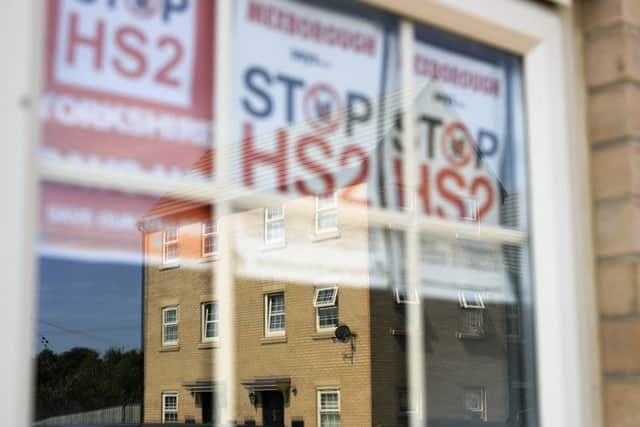HS2 will benefit North and regions more than London, says new report


Advertisement
Hide AdAdvertisement
Hide AdIt follows publication of a 64-page report, called Why Britain Needs HS2, which has been produced by the High Speed Rail Leaders Group to counter mounting political opposition.


In a bid to win over Tory activists, Boris Johnson has promised an immediate review into Britain’s largest ever infrastructure project if, as expected, he becomes Prime Minister in two weeks time.
Advertisement
Hide AdAdvertisement
Hide AdToday the critique, endorsed by – among others – Leeds City Council leader Judith Blake – sets out why HS2 is fundamental to the growth of city-regions and will not to lead to future growth being centred on London.


“While business trips account for just over a tenth of all rail trips across the country, currently almost half of the rail journeys between the city regions that will be connected by HS2 are for business,” it concludes.
Advertisement
Hide AdAdvertisement
Hide Ad“Jobs in advanced manufacturing, professional services and technology have grown at nearly three-times the rate of other sectors, and are concentrated in city-regions. This upward trend is expected to continue.


“While these jobs currently make up less than one-fifth of total employment, they deliver around a quarter of all economic output and more than a third of the nation’s total exports. Employment in these sectors gives rise to a large part of the business travel market.”
The study also says that electronic communication is likely to increase the need for future train travel. “Inter-city rail travel has grown strongly over the last 25 years as the internet revolution has unfolded. It is sometimes suggested that the digital age will obviate the need to travel,” it concludes.
“But while commuter patterns are shifting, and car ownership and driving licence holding is much reduced among younger adults in cities, there is no sign of a let-up in longer distance travel.
Advertisement
Hide AdAdvertisement
Hide Ad“The need for business meetings or college attendance, or for visiting family and friends and attending major events —concerts, sports etc, continues to rise. Indeed, mobile technology makes long distance travel by rail more attractive.”
As the Government announced funding to create a high speed rail research facility at the University of Leeds, the report also challenges critics who believe Northern Powerhouse Rail – a £39bn east-west line – should take precedence. “HS2 is ready to build (in phases). It has been through a 10-year planning programme. Projects like Northern Powerhouse Rail — or city-based light rail schemes — will take many years to reach the same build-ready status,” it warns.
But the study adds: “There is no reason why some of the construction could not ‘start in the North’ — for instance that needed between Leeds and Sheffield —as a phased implementation of an overall agreed plan.”
HS2 to counter new London lines
COMPLETION of the new Crossrail and Thameslink lines in London strengthens the case of increasing rail capacity in the North.
Advertisement
Hide AdAdvertisement
Hide Ad“Existing lines are approaching or at capacity, and are unable to accommodate more or longer trains, constraints which will place a limit on the ability of firms to expand and do business,” say industry leaders.
“London will get a major transport network capacity boost. And so the attraction for businesses to expand in London — rather than elsewhere — will be all the greater. The need for the capacity increase that HS2 will bring is essential to create a more balanced growth pattern in Britain.”